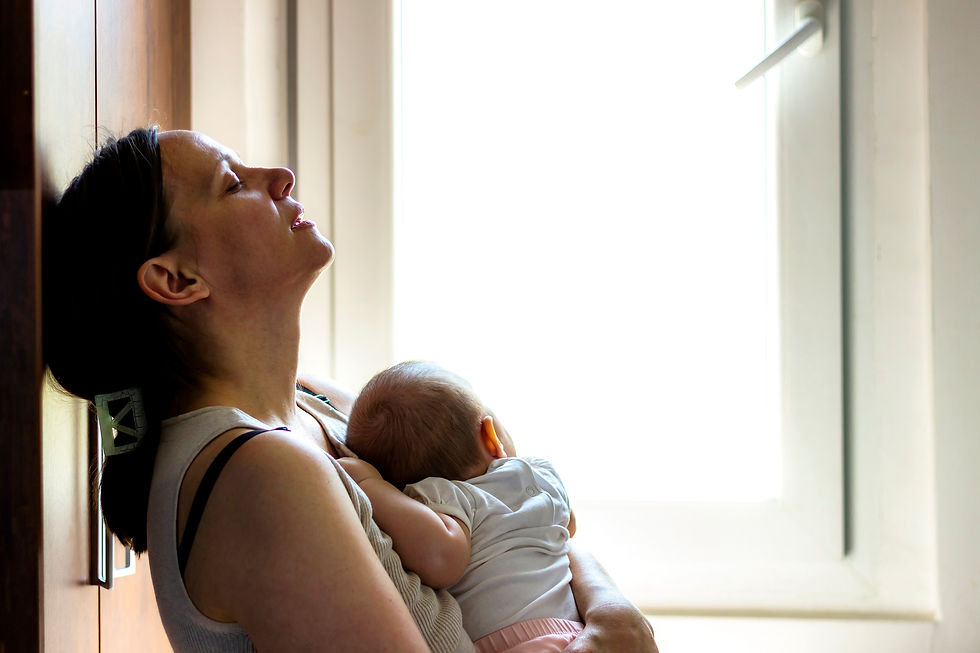Postpartum Depression and Generational Gaps
- Flower Bomb Media Group

- Aug 23, 2022
- 3 min read
Article by Delanee Ensley

Mental health is starting to be accepted more in society, and mothers have started to get the help they need when it comes to postpartum depression. However, it wasn’t always this way.
Being a new mom is difficult; it is physically and emotionally straining, and most mothers go through something called the baby blues. The baby blues, according to the Mayo Clinic, “... [symptoms] commonly include mood swings, crying spells, anxiety, and difficulty sleeping.” However, sometimes it’s not the baby blues and can be something stronger like postpartum depression.
Throughout generations, postpartum depression has been growing. According to the Cleveland Clinic, mothers from Generation Y are 51% more likely to experience postpartum depression than older generations. Cleveland Clinic also reports that daughters with mothers from Generation Y, who experienced postpartum depression, are more likely to exhibit symptoms of depression themselves. There could be many reasons for this higher percentage, but the main cause that we have seen is that people are actually reporting their depression instead of internalizing it.
Mental health in past generations has been a taboo subject; women were not supposed to have problems. People, especially women, were expected to keep quiet about their internal struggles. The good news is that times are changing, and society has begun to encourage everyone to be open about their struggles. The bad news is that the older generations, like our mothers and grandmothers, were not given the same opportunity to talk about and receive help for their postpartum depression.
Coming from a personal angle, my mother had a very difficult time dealing with her postpartum depression, and lots of people saw that. There are four of us kids, and after the first couple, she brushed off her feelings. After her last two were born, she could feel the full effects of her depression. She told me that she didn’t know how to handle it, and neither did my family. We reached out to the family around us, including my grandmother. Though we know she cares, my grandmother was almost offended at the thought that her daughter (my mother) could be having these kinds of emotions: emotions that may seem weak in the eyes of loved ones. This generational gap makes it hard to go to loved ones for help. If older generations did not receive support and love when they expressed their internal struggles, it makes it hard for them to give support to others.

There is still a prominent mental health generational gap between mothers and daughters in understanding and addressing postpartum depression. There seem to be negative feelings towards family members because of a lack of support. It’s important to search for the signs in order to realize if a family member is struggling. Some of the signs, according to the Mayo Clinic include changes in sleep patterns, talking about self-harm, and many more. If you notice a friend or family member struggling with these feelings, it is important to listen to them and possibly help them to see a therapist or join a support group.
Postpartum depression can be a difficult thing to talk about, especially with the stigma surrounding it. Though it is still not a comfortable thing to talk about, it needs to be discussed in order to make it a comfortable topic. There should never be a moment when you are embarrassed to talk about your feelings.




Comments